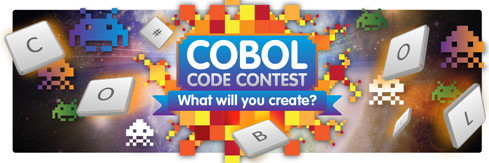According to research covering more than 100 universities across the globe from earlier this year, 58% of the academic leaders questioned believed COBOL programming should be on the curriculum. Yet only 27% could confirm that was the case, and only 18% had COBOL as a core part of the course with the rest making it an elective component. This coding support quandary is pushed further into the scratching of heads limelight when you consider that (according to the Aberdeen Group; Giga Information Group; Database & Network Journal; The COBOL Report; SearchEngineWatch.com; Tactical Strategy Group and The Future of COBOL Report):
- COBOL supports 90% of Fortune 500 business systems every day
- 70% of all critical business logic and data is written in COBOL
- COBOL connects 500 million mobile phone users every day
- COBOL applications manage the care of 60 million patients every day
- COBOL powers 85% of all daily business transactions processed
- COBOL applications move 72,000 shipping containers every day and process 85% of port transactions
- 95% of all ATM transactions use COBOL
- COBOL enables 96,000 vacations to be booked every year
- COBOL powers 80% of all point-of-sale transactions
- There are 200 more COBOL transactions per day than Google + You Tube searches worldwide
- $2 trillion worth of mainframe applications in corporations are written in COBOL
- 1.5 million new lines of COBOL code are written every day
- 5 billion lines of new COBOL code are developed every year
- The total investment in COBOL technologies, staff and hardware is estimated at $5 trillion
- An estimated 2 million people are currently working in COBOL
One provider of enterprise testing and management solutions, Micro Focus, firmly believes that COBOL is a skillset employers in the business sphere are looking for. In a blog entry entitled 'COBOL: the language for future generations' it admits that "learning older programming languages such as COBOL as well as more modern languages is something few, within today’s generation, consider" yet maintains "the language is present within 85 percent of the world’s business applications, and it’s place in behind the scenes business software is as prominent as ever. COBOL is woven far too deeply into the business world to simply tear out and throw away. The world would be a very different place. Without it in many situations, communications around the world would collapse."
As part of a commitment to bridging the IT skills gap, and helping to create a new generation of COBOL developers, Micro Focus established an Academic Program earlier in the year. "Since the rebirth of this program, we have seen a real upsurge in academic participants" Kevin Brearley, Senior Director of Product Management at Micro Focus says "an additional 44 universities around the globe have signed up to participate in our program – a membership increase of 26% - proving that COBOL has its place in the classroom and remains an importance component of the academic curriculum."

Now the company has announced the next step in this attempt to popularise COBOL, a global COBOL Coding Competition. Open to students and community developers around the world, the challenge is a simple one: design and develop a video game program using Micro Focus Visual COBOL Personal Edition. That's it really, apart from offering prizes including $1000 cash, a Sony Xperia Z and an iPad Mini. Micro Focus told DaniWeb that anyone who dabbles in coding, or who wants to break into code development, can take part in this competition and entries can be based on any existing video game such as COBOL Blitz version of Space Invaders, or a new game entirely. As long as the game contains at least 50% Visual COBOL it's eligible. You've got until December 17th to enter.
So, will you be taking part? More to the point, do you code in COBOL? If not, why not? Is COBOL really relevant to the coding landscape, and those whose code is creating it, of today?